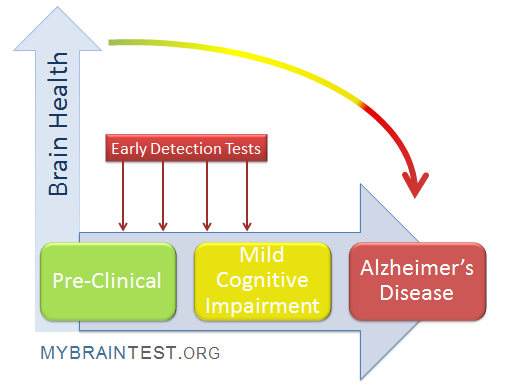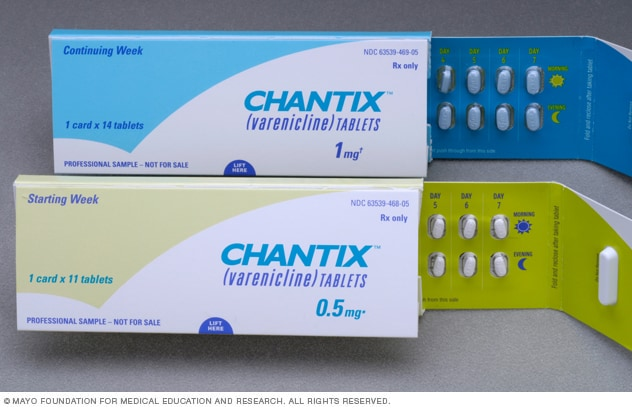Alzheimer’s early detection plays a crucial role in advancing our understanding of cognitive impairment and addressing neurodegenerative diseases. Recent research from Mass General Brigham highlights a significant breakthrough with their development of an at-home Alzheimer test, using innovative olfactory assessments to gauge an individual’s ability to recognize and remember scents. This simple yet effective olfactory test could help identify at-risk individuals long before the more recognizable early signs of Alzheimer’s appear. By focusing on the connection between smell and cognitive function, experts believe this could lead to timely interventions that markedly improve outcomes. As we continue to explore the links between sensory function and cognitive health, the potential for early detection of Alzheimer’s disease offers a hopeful avenue for early diagnosis and treatment.
In the realm of neurodegenerative disorders, the proactive identification of early cognitive decline is paramount. Terms such as early identification of memory loss or preliminary symptoms of dementia are gaining traction, as researchers strive to devise new methodologies for spotting at-risk individuals. By utilizing noninvasive tools like personalized aroma assessments that can be conducted at home, healthcare providers can gather valuable insights into a patient’s brain health. Innovative studies are now examining how sensory loss could serve as a critical indicator for conditions such as Alzheimer’s disease and similar ailments. Through a better understanding of these initial signs, we can pave the way for both preventive measures and therapeutic advancements.
Understanding Olfactory Tests for Alzheimer’s Early Detection
Olfactory tests for early detection of Alzheimer’s disease represent a groundbreaking advancement in neurodegenerative research. Researchers from Mass General Brigham have developed a simple yet effective method where participants use their sense of smell to identify different odors from labeled cards. This study highlights how our olfactory senses may provide critical information about cognitive health, particularly in older adults who could be unknowingly at risk for Alzheimer’s. Early detection through olfactory dysfunction can pave the way for timely interventions, potentially impacting the progression of cognitive impairment related to Alzheimer’s.
For many, the thought of using a home-based olfactory test may seem unconventional, but the results are promising. With participants able to perform the test independently, the ease of administration signifies a shift towards more personalized Alzheimer’s screenings. Whether through cheek swabs or scent recognition, these at-home tests can facilitate widespread monitoring of cognitive changes among the aging population, allowing healthcare professionals to better track and respond to early signs of Alzheimer’s.
Cognitive Impairment: Signs to Watch For
Cognitive impairment can manifest in various forms, but recognizing early signs is essential in mitigating the effects of diseases like Alzheimer’s. Memory lapses, difficulty in concentrating, or struggling to find the right words can all signify potential cognitive decline. Being vigilant about these symptoms is crucial as they can serve as indicators that further assessment may be needed. If you or someone you know exhibits memory issues or confusion, it’s vital to consult with a healthcare professional for evaluation.
In addition to memory-related symptoms, other signs of cognitive impairment may include challenges in problem-solving and difficulty understanding complex concepts. These issues can be subtle at first but might accumulate over time, leading to more pronounced difficulties with daily tasks. Early detection through awareness of these early signs can motivate individuals to seek diagnostic tests, such as the olfactory test, which can help identify risk levels for Alzheimer’s and other neurodegenerative diseases.
The Role of At-Home Alzheimer Tests
At-home Alzheimer tests provide an innovative approach for early detection and monitoring of cognitive health. As research indicates, tools such as olfactory tests can be effectively completed in the comfort of one’s own home, making them accessible to a broader audience. This convenience could be particularly beneficial for older adults who have mobility issues or live in remote areas where clinical assessments may not be readily available. The ability to independently perform tests streamlines the process of monitoring cognitive health over time.
Moreover, regular usage of at-home tests can help in tracking changes in cognitive abilities, fostering a proactive attitude towards brain health. With the results from these tests, practitioners can make informed decisions about the next steps, whether it’s recommending lifestyle changes, monitoring progression, or discussing treatment options if early signs of Alzheimer’s disease are detected. This shift towards patient-centric care empowers individuals to take control of their cognitive well-being.
Exploring Neurodegenerative Diseases and Early Indicators
Neurodegenerative diseases such as Alzheimer’s are complex and multifaceted, but early indicators can provide critical insights into their progression. Research has shown that subtle changes in one’s sense of smell may serve as a significant warning sign, prompting further investigation into cognitive health. For instance, olfactory dysfunction not only indicates potential Alzheimer’s but could also be associated with other neurodegenerative conditions like Parkinson’s disease.
Understanding the early indicators of these diseases is crucial for timely intervention and treatment. As scientists continue to explore the links between olfaction and cognitive decline, they reinforce the importance of comprehensive assessments that go beyond traditional cognitive tests. Identifying and addressing neurodegenerative disease symptoms early can drastically improve patient outcomes and enhance the quality of care.
The Significance of Olfactory Dysfunction in Alzheimer’s
Olfactory dysfunction is gaining recognition as a potentially pivotal early indicator of Alzheimer’s disease. Studies reveal that individuals exhibiting a diminished sense of smell are at a greater risk for developing cognitive impairment. As cited in the research from Mass General Brigham, older adults with mild cognitive impairment scored significantly lower in odor discrimination tests compared to their cognitively normal peers, marking a clear relationship between olfactory health and cognitive function.
This connection illustrates that the sense of smell may serve not just as a sensory experience but also as a diagnostic tool. Recognizing olfactory dysfunction as a marker for neurodegenerative diseases opens avenues for more focused research and a deeper understanding of how we can leverage sensory assessments in identifying individuals at risk for Alzheimer’s. By recognizing and addressing these early signs, we can strive towards earlier, more effective interventions.
Integrating Cognitive Assessments in Personal Health
Incorporating cognitive assessments, such as olfactory tests, into personal health routines can enhance awareness of brain health. This approach encourages individuals to take proactive measures in monitoring their cognitive functions regularly. For example, by integrating simple tests into routine health checks, individuals can stay informed about their cognitive status and respond to early signs of Alzheimer’s before they escalate.
This personalized health monitoring aligns perfectly with contemporary healthcare trends that emphasize preventative measures. As more people engage with at-home cognitive assessments, there will be a significant cultural shift towards valuing mental health equally alongside physical health. Overall, this proactive approach can enhance early identification and promote better health outcomes.
Future Directions in Alzheimer’s Research
The landscape of Alzheimer’s research is constantly evolving, and the future looks promising with ongoing studies into early detection methods. The integration of olfactory tests into clinical settings marks a significant step towards a deeper understanding of the disease. Researchers are also considering how these tests can be utilized alongside genetic and neuropsychological assessments, potentially leading to a multifaceted approach to diagnosing Alzheimer’s at its earliest stages.
As technology advances and our understanding of neurodegenerative diseases deepens, innovative solutions will emerge. Future research may explore the impact of lifestyle factors and their correlation with cognitive health, further building on the groundwork laid by recent findings in olfactory dysfunction. This holistic approach to addressing Alzheimer’s could revolutionize how we detect and intervene in cognitive decline, ultimately enhancing the quality of life for those at risk.
Collaboration in Alzheimer’s Detection Research
Collaboration between various research institutions and healthcare providers is vital for enhancing Alzheimer’s detection methodologies. As demonstrated by the efforts of Mass General Brigham, leveraging diverse expertise from different fields within neuroscience and psychology can lead to more comprehensive approaches. This collaborative spirit fosters innovation, providing a rich environment for exploring novel concepts like olfactory testing in homes.
Moreover, partnerships in research ensure that findings can be widely disseminated across different populations and cultures. By working together, scientists and healthcare professionals can create universally accepted standards and protocols for Alzheimer’s testing. This collaborative effort will ultimately play a crucial role in informing public health strategies and improving the overall management of neurodegenerative diseases.
The Connection Between Lifestyle and Alzheimer’s Disease
Understanding the connection between lifestyle and Alzheimer’s disease can provide valuable insights into prevention strategies. Emerging research is increasingly pointing to factors such as diet, exercise, and social engagement as potential mitigators of cognitive decline. For instance, individuals who maintain an active lifestyle and eat a balanced diet rich in antioxidants may experience slower progression of Alzheimer’s symptoms, especially when combined with proactive cognitive assessments like olfactory testing.
This perspective emphasizes the crucial role of lifestyle choices in maintaining cognitive health. As we continue to investigate how various factors contribute to neurodegenerative diseases, it is essential to encourage individuals to adopt habits that promote brain health. By reinforcing the significance of holistic health approaches, we can empower people to embrace proactive measures in their daily lives, potentially reducing their risk for Alzheimer’s and other cognitive impairments.
Frequently Asked Questions
What is the significance of olfactory testing in Alzheimer’s early detection?
Olfactory testing plays a crucial role in Alzheimer’s early detection as it can identify olfactory dysfunction, which is a potential early warning sign of neurodegenerative diseases. Research has shown that older adults experiencing cognitive impairment performed significantly worse on these olfactory tests compared to cognitively normal individuals, indicating its potential for identifying those at risk of Alzheimer’s years ahead of classic memory symptoms.
How does the at-home Alzheimer test work for early detection?
The at-home Alzheimer test developed by researchers includes an olfactory assessment, where participants sniff various odor labels presented on a card. This simple, noninvasive test allows individuals to assess their ability to identify and remember scents. The results can indicate cognitive impairment, aiding in the early detection of Alzheimer’s before substantial memory loss occurs.
What are some early signs of Alzheimer’s that olfactory tests can help identify?
Early signs of Alzheimer’s that can be highlighted through olfactory tests include difficulty in smell identification and memory associated with specific odors. Research indicates that a diminishing ability to discriminate and recall smells may correlate with early cognitive decline, serving as an important indicator for potential Alzheimer’s disease risk.
Can olfactory dysfunction lead to early detection of other neurodegenerative diseases apart from Alzheimer’s?
Yes, olfactory dysfunction is not only linked to Alzheimer’s but can also serve as an early indicator of other neurodegenerative diseases such as Parkinson’s and chronic traumatic encephalopathy. Research is ongoing to assess the efficacy of olfactory testing as a universal early detection tool for various cognitive impairments.
Is the olfactory test reliable for Alzheimer’s early detection across different languages?
According to the research findings, the olfactory test remains reliable for Alzheimer’s early detection among both English- and Spanish-speaking participants. The study showed that individuals performed equally well regardless of language, suggesting the test’s potential widespread applicability in diverse populations.
How can early detection of cognitive impairment benefit Alzheimer’s patients?
Early detection of cognitive impairment through methods like olfactory testing allows for timely interventions that could slow the progression of Alzheimer’s. Identifying individuals at risk can lead to earlier treatments, lifestyle changes, or participation in clinical trials, potentially enhancing their quality of life and cognitive health.
What advancements are researchers making in Alzheimer’s early detection methods?
Researchers are actively developing cost-effective, noninvasive tools for Alzheimer’s early detection, such as the olfactory test. These advancements focus on practical applications, enabling tests to be conducted at home, which enhances accessibility for individuals who may be at risk for cognitive decline.
What does the research say about the efficacy of the olfactory test in predicting Alzheimer’s disease?
Recent studies suggest that the olfactory test is effective in predicting Alzheimer’s disease by measuring odor identification and memory. Participants with mild cognitive impairment tended to have lower scores, indicating that this test could be an essential component in early detection strategies aiming to pinpoint Alzheimer’s risk well before clinical symptoms manifest.
What is the role of neuropsychological testing in conjunction with olfactory tests for Alzheimer’s early detection?
Neuropsychological testing, when combined with olfactory tests, can enhance the predictive accuracy for Alzheimer’s early detection. This comprehensive approach allows researchers to evaluate cognitive functions in more detail and track changes over time, thereby providing a deeper understanding of an individual’s cognitive health trajectory.
| Key Points |
|---|
| Researchers from Mass General Brigham developed an at-home olfactory test for early detection of Alzheimer’s. |
| The test assesses the ability to identify and remember odors, showing lower scores in cognitively impaired individuals. |
| Olfactory dysfunction may indicate a risk for neurodegenerative diseases including Alzheimer’s and Parkinson’s. |
| The study included English and Spanish speakers, showing consistent results across different languages. |
| Future research may enhance predictive capabilities of cognitive decline through neuropsychological assessments. |
Summary
Alzheimer’s early detection is crucial in identifying individuals at risk before symptoms arise. A recent study highlights an innovative olfactory test that allows for at-home evaluation of cognitive impairment signs. This test not only promotes early intervention for Alzheimer’s but also has the potential to enhance research efforts aimed at understanding neurodegenerative diseases. Given that olfactory dysfunction can serve as a subtle indicator of cognitive decline, the findings pave the way for more accessible and noninvasive testing methods for Alzheimer’s disease.



